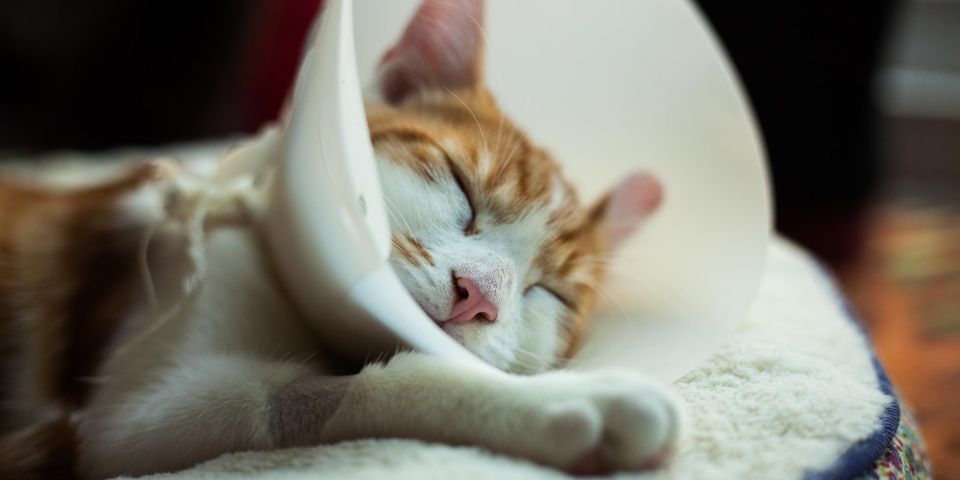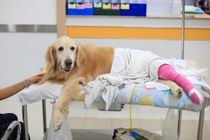
Surgery is difficult for pets and owners alike and can bring lots of stress. One way to ease this is to ensure the best post-operative care for your cat or dog, which will depend on the type of surgery and the pet’s health. Follow these pet medical care tips to help your pet recover quickly once you’re home.
Post-Op Care Tips for Your Cat or Dog
1. Keep Activity to a Minimum
Activity and movement from your furry friend can cause chafing or lead to infections or loose stitches at the incision site. Because of this, you’ll need to restrict your pet’s activity as much as possible. This means keeping them confined to a small area, such as a crate or small room, while ensuring they still have space to stand and turn around. Provide comfortable bedding to encourage them to rest.
Particularly active pets may be given sedatives to keep them from trying to play or run while in recovery. This may help if they’ve been prescribed an Elizabethan collar (popularly known as a “cone of shame”) to prevent them from attempting to lick the incision site.
2. Stay Consistent With Cleaning & Medication
 Cleaning the incision and providing regular medications is an essential part of your pet medical care routine. Medication will ensure they don’t feel pain and will keep infection risk to a minimum if antibiotics have been prescribed.
Cleaning the incision and providing regular medications is an essential part of your pet medical care routine. Medication will ensure they don’t feel pain and will keep infection risk to a minimum if antibiotics have been prescribed.
Because your pet will likely be wearing the cone of shame, you’ll have to clean their surgery site for them. A damp cloth or paper towel works well in wiping away debris or blood, but be gentle so you don’t remove any scabs or stitches.
3. Know the Signs of Poor Recovery
Any invasive surgery carries the risk of infection, no matter how small. That’s why it’s vital to know what to look out for in the case of infection or poor recovery. While your pet may be lethargic for a few days after surgery, long-term refusal to eat or use the restroom can be life-threatening if left for too long. You should also look for pus and major swelling at the surgery site. Fever and vomiting are likely signs that something is wrong. If you notice any of these signs, take your pet to the animal hospital or speak to a veterinarian for professional pet medical care.
Post-surgery pet medical care starts with an experienced, compassionate veterinarian. For over 40 years, the trusted vet techs at Carolina Veterinary Hospital in Sanford, NC, have helped pet owners with emergency pet care and surgery. They also provide grooming and boarding services as well. To make an appointment or to learn more about their services, visit their website or call (919) 258-3349.
About the Business
Have a question? Ask the experts!
Send your question

